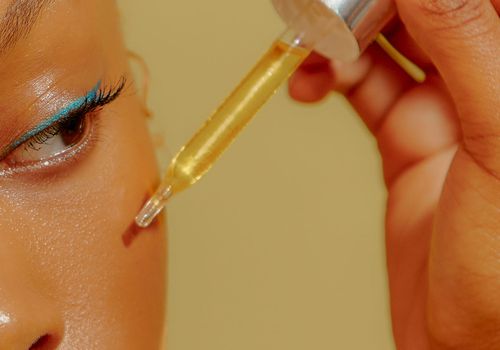We Ask a Derm: What Is Retinaldehyde and How Does It Compare to Retinol?
CHATTANOOGA, Tenn – By now you’ve likely heard of retinol. Next to sunscreen, it’s easily the most touted skincare product by dermatologists because of its proven ability to improve firmness in the skin (as well as increase cell turnover, which is especially helpful if you’re prone to breakouts).
But the biggest knock on the beloved ingredient is that some people just can’t tolerate it, and for many others, there is an adjustment period during which your skin becomes dry and irritated.
If you are able to stay the course (i.e., no less than 12 weeks), you’ll be able to see why retinol has been nicknamed “the gold standard” in anti-aging. “I usually tell patients that tolerability builds up over time, and although you might get some initial dryness and irritation, it is worth it in the long haul,” says Dr. Dhaval Bhanusali, a dermatologist and founder of Hudson Dermatology & Laser Surgery in New York.
So, doc, what is retinaldehyde and how is it different from retinol or retinoids?
“Retinoids is an umbrella term for all the topical Vitamin A derivatives,” explains Bhanusali. “The active form of vitamin A is retinoic acid, which is found in prescription options like tretinoin or tazarotene. All other forms need to be converted to retinoic acid before your skin can use it. The fewer steps in the conversion process, the more potent the retinoid—and vice versa.”
This is what makes retinaldehyde an enticing option. “Since retinaldehyde is the direct precursor to retinoic acid, it’s just one step down from prescription retinoids, which makes it a good alternative if you find the Rx to be too irritating,” he explains.
How would you rank all of the different retinoids in order of strength?
According to Bhanusali, the order from weakest to strongest goes like this: retinol esters, retinol, retinaldehyde, and then retinoic acid. Within the retinoic acids that are commonly prescribed by derms, adapalene is weakest, followed by tretinoin and then, tazorotene, which is the strongest prescription available.
How do you decide to use one over another?
“Retinol esters need additional steps and are theorized to be best for sensitive skin, although many believe they aren’t effective,” says Bhanusali. So, for people who want a gentler alternative, he recommends bakuchiol instead.
As for retinaldehydes, they’re a great over-the-counter option to start, but as your skin is better able to tolerate the ingredient, you’ll get the most visible effects with retinoic acid over time. (Tip: Online platforms like Skin Medicinals allow your physician to formulate a customized retinoic acid to include calming active ingredients like niacinamide, turmeric and even hyaluronic acid to help with tolerability.)

